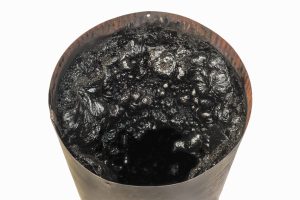Best fuel for your stove is a question we are often asked. If you’re wondering what the best fuel for your stove is, I’m afraid the answer isn’t a one liner – pardon the pun. Here we outline different fuel types, their benefits, issues and what the recommended best fuel for your stoves should be.
Like with all chimney related options, it really depends on what you currently have and what you want the end result to be.
Let’s start with what you currently have. By this I mean what do you have in your chimney. Is it lined? If so, what liner is it? Is your stove a multi fuel stove or a wood only stove?
Liner Type
The most popular lining material for stoves is stainless steel. There are two types of grade; 316 and 904. The difference between the two is that a grade 316 liner cannot burn smokeless coal and has a warranty of 10 years. The grade 904 liner can burn smokeless coal and has a warranty of 20 years. House coal and wood can be burnt on either grade. The reason smokeless coal can’t be burnt on grade 316 liner is that it damages the liner and invalidates the manufacturer warranty. The 904 liner isn’t damaged by smokeless coal.
Stove Type
With stoves there are two types; multi fuel (which means you can burn wood and coal) and wood burners (which means you can only burn wood). You need to establish which type your stove is, as well as your liner and combine the requirements to identify what you can burn.
How can you tell the difference between the two types of stoves? Simple. Look at the bottom of the stove, where you place your fuel. Is it solid, or are there grates? If it is solid then it’s a wood burner, if it has a grate or riddles then it’s a multi fuel stove.
Below are some examples:
With a multi fuel stove + grade 316 liner – wood (kiln dried or seasoned) and house coal only
For a multi fuel stove + grade 904 liner – wood (kiln dried or seasoned), house coal and smokeless coal
Using a wood burning stove + grade 316 liner – wood (kiln dried or seasoned) only.
For a wood burning stove + grade 904 liner – wood (kiln dried or seasoned) only.
Using Properly Seasoned Wood
As well as using the correct type of fuel, it is essential that when using wood you only use wood that has either been kiln dried or seasoned for 6 years. The reason behind this is because when un-seasoned wood is burnt is creates creosote and tar in your liner.
This gives us two issues:
- The tar and creosote collecting in your liner acts as fuel for a chimney fire
- The tar and creosote will quickly block the liner (as in the photo) causing carbon monoxide and smoke to come back into your home.
In the majority of stove installations, a 5” or 6” liner will be used. This means the tar and creosote created from burning unseasoned wood only needs to block one part of your 5” or 6” liner for it to have dangerous implications.
Stove users are at a much higher risk of carbon monoxide coming back into the room than open fireplaces because unlined open fireplaces will typically have a flue size of 9” by 9” which is a much bigger area for the creosote and tar to block.
Smoke Controlled Zones
If you don’t already have a stove but are in the process of purchasing one and wondering what fuel you can use, the first step is to find out if you are in a smoke control zone. You can easily find this out by going on your local council’s website. They will have either a postcode search or a list of streets that fall under the smoke control zone.
DEFRA Approved Stoves
If your property is in the smoke control zone then you need to either purchase a DEFRA approved stove which will enable you to burn coal or wood or if it’s not a DEFRA Approved stove then you will only be able to burn smokeless coal. This means you must ensure the liner you have installed with it is fit for smokeless coal – the 904 grade liner.
If you don’t live in a smoke control zone then the choice is really yours. Most people go with a multi fuel stove so that they have the choice of burning either wood or coal. The most popular option is to burn wood but some people like to have a bed of coal so that it keeps the fire going longer. This was common practice with open fires which need that additional help to keep the fire going but it isn’t required as much with stoves. If you want to be able to burn smokeless coal then you’ll need to have a grade 904 liner installed but if you’re not then a grade 316 liner should suit your needs.
If you’re looking for further information specific to appliance types, check out our following articles:
